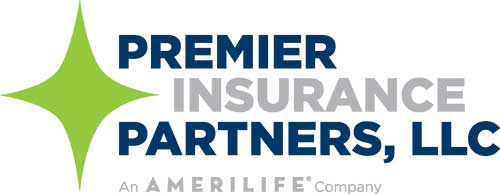
What Is The Difference Between Federally Facilitated Marketplace (FFM) Certification And America’s Health Insurance Plans (AHIP) Certification?
In the intricate world of health insurance in the United States, there are two necessary certifications. Federally Facilitated Marketplace (FFM) Certification and America’s Health Insurance Plans (AHIP) Certification. These certifications play significant roles in facilitating access to healthcare coverage and ensuring professionals are equipped to guide consumers through the complex insurance landscape. However, understanding the distinctions between FFM Certification and AHIP Certification is essential for both consumers and insurance professionals. Let’s jump into the nuances of each certification, highlighting their respective functions, benefits, and target audiences.
Understanding Federally Facilitated Marketplace (FFM) Certification:
The Federally Facilitated Marketplace (FFM) Certification is a program established by the Centers for Medicare & Medicaid Services (CMS) to train and certify individuals and organizations to assist consumers in enrolling in health insurance plans through the Health Insurance Marketplace. The FFM serves residents of states that have opted not to establish their own state-based individual marketplaces under the Affordable Care Act (ACA).
Key aspects of FFM Certification include:
Enrollment Assistance – FFM certified individuals and organizations, known as navigators, certified application counselors, or licensed agents, help consumers navigate the Health Insurance Marketplace. They provide guidance on plan options, eligibility criteria, enrollment procedures, and financial assistance opportunities. The marketplace learning management system (MLMS) is a platform accessible via CMS for marketplace training. New users need to register and access the training modules at the CMS enterprise portal.
Compliance Requirements – FFM Certification ensures that individuals and organizations comply with CMS standards and regulations governing enrollment assistance in the marketplace. This includes maintaining confidentiality, providing accurate information, and adhering to ethical standards.
Renewal and Recertification – FFM Certification is typically valid for one year, after which individuals and organizations must renew their certification through FFM training and assessment. Recertification ensures that certified entities remain up-to-date with changes in regulations, policies, and offerings for each plan year. However, the recertification is shorter than for new sales agents taking the exam the first time.
Understanding America’s Health Insurance Plans (AHIP) Certification:
America’s Health Insurance Plans (AHIP) Certification is a training program offered by the national trade association representing the health insurance industry. AHIP’s certification program is designed to educate insurance sales agents and brokers on various aspects of health insurance, including Medicare, Medicaid, individual and group health plans, and compliance with healthcare regulations.
Key features of AHIP Certification include:
Comprehensive Training – AHIP training provides agents and brokers with in-depth training on Medicare Advantage, Medicare Part D Prescription Drug Plans, Medicaid, individual and group health insurance plans, and the Affordable Care Act (ACA). The curriculum covers topics such as plan options, eligibility requirements, enrollment procedures, and compliance with regulatory standards.
Industry Recognition – AHIP Certification is widely recognized within the health insurance industry as a mark of professionalism and expertise. Insurance professionals who complete AHIP Certification demonstrate their commitment to delivering high-quality service and accurate guidance to clients.
Continuing Education – AHIP offers ongoing education and training opportunities to help insurance professionals stay current with industry developments, regulatory changes, and emerging trends. Continuing education courses enable certified sales agents and brokers to expand their knowledge and skills, enhancing their effectiveness in assisting consumers with insurance-related matters.
Differences Between FFM Certification and AHIP Certification:
While both FFM Certification and AHIP Certification are integral to the healthcare system, they serve distinct purposes and cater to different stakeholders.
Function and Audience – FFM Certification is primarily geared towards individuals and organizations that provide enrollment assistance to consumers in the Health Insurance Marketplace. AHIP Certification targets licensed insurance representatives who advise clients on products such as Medicare and Medicaid.
Focus and Scope – FFM Certification focuses specifically on facilitating enrollment in health insurance plans offered through the Marketplace and ensuring compliance with CMS regulations, while AHIP Certification covers a broader range of topics, including Medicare, Medicaid, individual and group health insurance, and ACA compliance.
Understanding the differences between Federally Facilitated Marketplace (FFM) Certification and America’s Health Insurance Plans (AHIP) Certification is essential for consumers seeking assistance with health insurance enrollment and insurance professionals providing guidance on different plans from providers. While FFM Certification focuses on facilitating enrollment in Marketplace plans and ensuring compliance with CMS regulations, AHIP Certification offers comprehensive training on various aspects of health insurance and is widely recognized within the industry.
Here at Premier Insurance Partners, we make selling insurance easy no matter where you are in your insurance career. We prioritize providing in-depth training to our sales agents to help their clients and grow your business. Find the best rate for your clients with our Medicare software for our top producers. Our annuity tool always offers the most recent changes. If you have any questions, please contact Premier Insurance Partner at 855-827-1661 or info@pip1.com.




